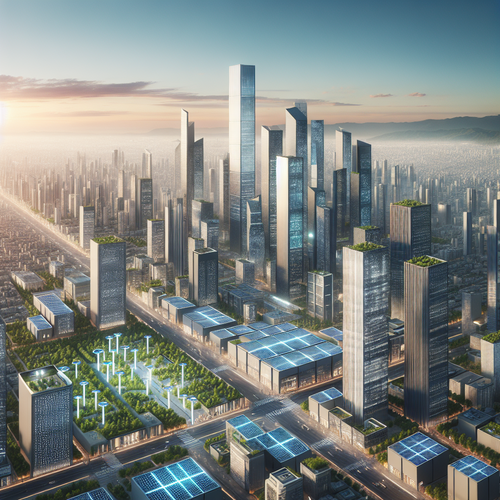
Smart Cities: The Future of Urban Living
Smart Cities: The Future of Urban Living
As urbanization continues to rise, cities are increasingly turning to smart technologies to improve infrastructure, increase efficiency, and enhance the quality of life for residents. The concept of smart cities leverages interconnected systems and data analytics to create more sustainable and livable urban environments.
What Are Smart Cities?
Smart cities utilize various technologies such as the Internet of Things (IoT), Artificial Intelligence (AI), and big data to manage resources effectively. The aim is to address urban challenges such as congestion, waste management, and environmental sustainability.
The Pillars of Smart Cities
- Connectivity: Enhanced communication networks that allow devices to interact and share data.
- Data Analytics: Collecting and analyzing data to make informed decisions in real-time.
- Sustainability: Implementing eco-friendly solutions to reduce the carbon footprint of urban areas.
- Citizen Engagement: Encouraging public participation through digital platforms for feedback and services.
Benefits of Smart Cities
Smart city initiatives offer a variety of benefits that impact residents directly. They include:
- Improved Public Services: Enhanced traffic management systems and waste disposal services.
- Energy Efficiency: Smart lighting and energy management systems lead to reduced energy consumption.
- Enhanced Safety: Improved surveillance and emergency response systems protect citizens better.
Examples of Smart City Innovations
Several cities worldwide have started embracing smart technology:
- Barcelona, Spain: Innovative solutions like smart parking systems and sensors to monitor waste levels.
- Singapore: Implementing an extensive network of IoT devices to manage traffic congestion and reduce pollution.
- Amsterdam, Netherlands: A robust public transport system integrated with real-time data to enhance commuter experiences.
Challenges Facing Smart Cities
Despite the promise of smart cities, there are significant challenges to address:
- Data Privacy: Safeguarding sensitive information while making data available for public benefit.
- Infrastructure Investment: High upfront costs associated with implementing smart technologies.
- Technological Adaptation: Ensuring that all citizens can access and benefit from smart city initiatives.
Future of Smart Cities
The future of urban living lies in the evolution of smart cities. As technology continues to advance, cities will become more efficient, sustainable, and responsive to the needs of their residents. The integration of smart technologies promises to enhance the interaction between citizens and their environment, paving the way for a better quality of life.
For further insights on interconnected technologies shaping our urban landscapes, check out our post on Harnessing the Power of AI in Smart Manufacturing.













